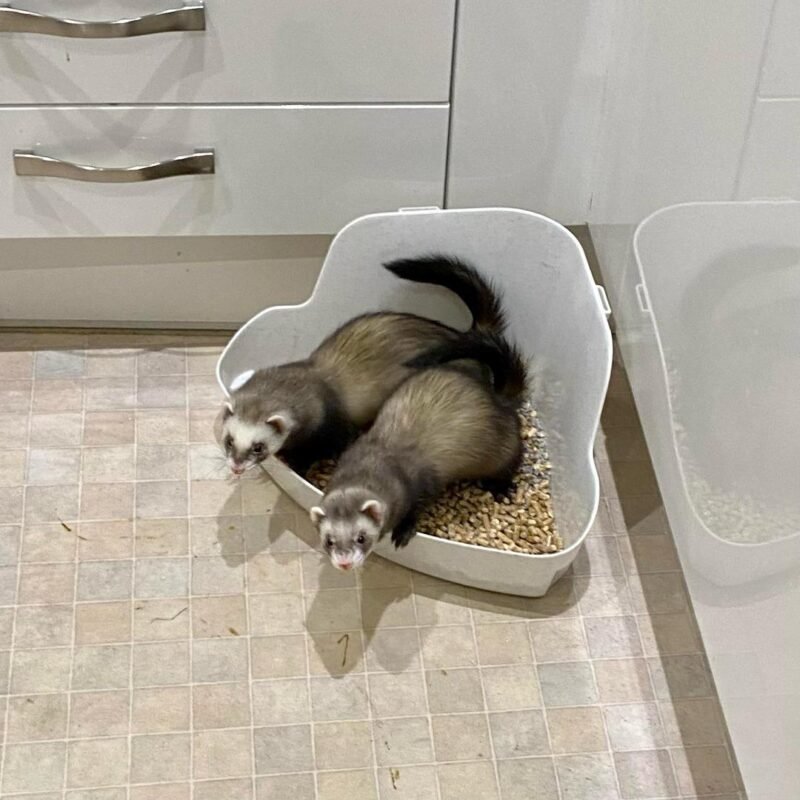FERRET CARE TIPS
1. Diet and Nutrition
Providing a balanced diet is essential for your ferret’s health and wellbeing. Look for high-protein ferret food that is rich in meat-based ingredients. Avoid foods with added sugars, artificial preservatives, and fillers. Consult with your veterinarian to determine the best diet for your ferret.
Some key nutritional considerations for ferrets include:
‣ High protein content: Ferrets require a diet rich in protein from animal sources, such as chicken, beef, or fish.
‣ Moderate fat content: Ferrets need a moderate amount of fat to maintain their energy levels and coat health.
‣ Low carbohydrate content: Ferrets do not require a lot of carbohydrates in their diet, so it’s best to avoid foods with high carb content.
‣ Essential vitamins and minerals: Ferrets require certain vitamins and minerals, such as vitamin A, vitamin D, and calcium, to maintain their overall health.

2. Litter Training
“Litter training your ferret requires patience, consistency, and positive reinforcement. Choose a safe and comfortable litter that your ferret finds appealing. Place your ferret in the litter box after meals or playtime to create a connection. Praise and reward your ferret when they use the litter box correctly.
Some tips to keep in mind:
‣ Choose the right litter: Avoid using clumping clay litter, as it can be harmful if ingested. Instead, opt for a non-toxic, odor-free litter.
‣ Place the litter box correctly: Position the litter box in a quiet, private area where your ferret feels safe and comfortable.
‣ Clean the litter box regularly: Scoop out solid waste daily and change the litter completely every week.

3. Health Checks
Regular health checks are crucial for detecting any potential health issues in your ferret. Monitor your ferret’s behavior, appetite, and stool quality daily. Look for signs of illness or disease, such as lethargy, vomiting, or diarrhea. Consult with your veterinarian if you notice any unusual changes in your ferret’s behavior or health.
Some health issues to watch out for:
‣ Adrenal disease: Monitor for signs such as hair loss, aggression, and enlarged adrenal glands.
‣ Insulinoma: Watch for symptoms like lethargy, seizures, and weight loss.
‣ Heart disease: Look for signs such as coughing, difficulty breathing, and lethargy.

4. Vaccinations and Preventative Care
Vaccinations and preventative care are essential for protecting your ferret from diseases and parasites. Consult with your veterinarian to determine the best vaccination schedule for your ferret. Also, use preventative measures such as heartworm medication, flea control, and tick control to keep your ferret safe.
Some preventative measures to consider:
‣ Heartworm medication: Administer monthly to prevent heartworms.
‣ Flea control: Use topical treatments or oral medications to prevent flea infestations.
‣ Tick control: Use tick preventatives, such as collars or sprays, to prevent tick-borne diseases.


